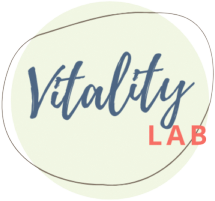Let’s talk about insomnia, and why orgasms could should be your new ‘sleep-hack’.
Not being able to sleep just makes everything worse.
From my bouts of depression, I vividly remember the constant fatigue and mind fog transforming simple everyday errands into insurmountable tasks. Oh, and of course conversation into arguments.
Looking into the topic I was stunned at the frequency of sleeping disorders on a global scale.
According to recent insomnia statistics, 30% of Americans develop sleeping disorders. With an estimate of 50% of the global population. 50%! And women are more exposed than men (figures).
A natural sleep-hack
Even before I started looking into the science of orgasms I was familiar with proverbs connecting sleep and orgasms. I think we all are.
One might even say it’s common knowledge that ‘knocking one-off’ once in a while before dozing off can work wonders if you feel a little tense and restless: Orgasms release tension and distract the mind momentarily. A great way to loosen up before shutting down. Agreed.
But what if that’s not enough?
If you’re one of the 50% burdened by sleep issues on a regular basis “once in a while” won’t cut it.
Don’t give up on the natural wellness elixirs of your body just yet, though. There’s a science to it. The best part: It’s 100% natural, totally free, and comes with an immediate feel-good guarantee.
All it takes is a bit of knowledge, some planning skills, and courage. If you provide the latter I’ll guide you through the two others 🙂
At the bottom of this post I’ll link to an introductory guide on how to use orgasms to set up a sound sleep cycle. So hang on.
Before we get to the guide it’s important to understand why orgasms help you fall asleep in the first place. Who knows, you might need the arguments to convince skeptical or insecure partners (or whispering voices of self-critique) that you need a regular 10-25 minutes of sexual self-care before bedtime.
Put very simply, every female orgasm releases a hormone called prolactin which makes us sleepy.
Actually, the increased levels of prolactin released in orgasms are one of the prime reasons why we get sleepy after an orgasm. Men to. You might have noticed …
So it’s perfectly natural that whoever climaxes first feels sleepy and might want to call it a night. Natural maybe, but not cool.
Help each other get that nice shot of sleep-hacking prolactin (or take matters into your own hands).
Double shots, preferably.
Actually a 2012 study in post-orgasmic prolactin surge by Brigitte Leeners MD and Tillmann H.C. Kruger MD suggests that the more orgasms women have in a row the more prolactin they release into their bloodstream – soo, if you already have the tools out …
Added bonus: A nightly dose of prolactin has another benefit affecting sleep quality.
Professor in neurology at Saint Louis University, Willis K Samson, suggests in his Handbook of Biologically Active Peptides that the release of prolactin causes a so-called “antinatriuretic” response – in other words:
If you orgasm before falling asleep odds are you will probably have a night of more uninterrupted sleep.
How often do I have to orgasm for it to affect my sleep?
Well, if Leener and Kruger’s study holds any truth, prolactin accumulates per orgasm so: The more you do it the more it helps. Now, that doesn’t mean you have to do it all night.
What I’ve found is that frequency is individual but regularity is key.
You need to find the frequency that fits your body and your cycle. So, releasing prolactin naturally into the bloodstream by way of orgasm might help you fall asleep and minimize disruptive trips to the bathroom.
But you need to be systematic about it.
Creating an climax routine is a whole separate topic which I, as promised, introduce in this article about how to set up an orgasm routine.
Learning that the body holds its own medical reserves helped me not only hack my sleep but gain a new and more autonomous perspective on health and self-care.
Disclaimer: It took me a while to find the routines best suited to my body and a while longer for the effects to seriously kick in. It’s a path of trial and error and occasional ‘difficult conversations’ and the benefits won’t be felt equally by everyone.
That said, it’s completely free, and the worst that can happen is that you get a healthy dose of self-care.
I recommend you give it a serious try – why not?
Best wishes
Kristine


